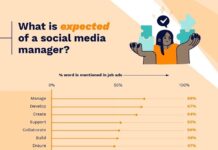Congress is in the midst of deciding whether to interfere in the one piece of the American economy that seems to be working well — the Internet. The Stop Online Piracy Act (SOPA; the Senate has its own version called PROTECT IP) promises, in the words of House Judiciary Lamar Smith, “protect one of the most productive sectors” of that same economy. He’s talking about copyright holders in the “productive” media, music and film industry, who are trying to protect their 20th century business model by running to Uncle Sam.
While we’re all for intellectual property rights, and all against piracy, the bill Congress wrote will put large, law-abiding parts of the web out of business. As can be expected from a body that explained the Internet as a “series of tubes,” it ignores the very real changes that have occurred in how people consume, share and pay for content on today’s social web.
The way it is now, online services like Twitter, Facebook and Etsy are protected from charges of copyright infringement as long as they act quickly and in good faith to remove copyrighted material from the web when they receive a complaint. SOPA changes the law in two major ways. First, it puts the onus on the online service to somehow prevent copyrighted material from being posted in the first place. Second, it allows complainants to ask payment gateways and ad networks to shut off access to offending sites, effectively putting them out of business.
This means that if someone uses Twitter to share a copyrighted piece of content, Twitter is liable. If someone uploads copyrighted material to make a TShirt and attempts to sell it on Cafe Press, Cafe Press is liable, and its entire commerce operation could be shut down. If someone were to post a copyrighted photo to Flickr, the sites entire ad-serving and payment system is in jeopardy, affecting every other user who is managing a business through Flickr. The Electronic Frontier Foundation has posted some more great examples of how thriving, innovative Internet businesses will suffer if SOPA is passed.
The net effect of the bill will be to provide corporate welfare to Hollywood and other traditional media industries, at the expense of the rest of us. Internet services that accept user-generated content–essentially the entire social web–will be forced to over-censor, re-think their user experience, and invest in legal expenses vs. innovation.
Please join us in opposing SOPA. Write to the lawyers and loonies who represent you in Congress. Here’s a great tool to help you do it.


